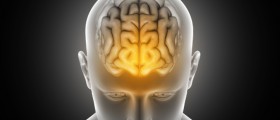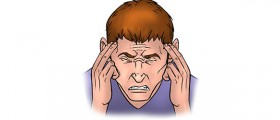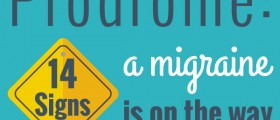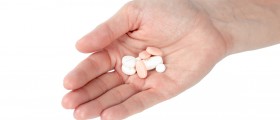
Migraine is a common and quite disabling neurological disorder characterized by severe headaches. It affects both genders and people of different age. It is estimated that around 28 million people in the United States suffer from migraine. Women are affected more and even though the condition usually does not occur before the age of 12, it may sometimes affect little children.
More about Migraine
The pain migraine sufferers have to deal with affects these people's life to a great extent and significantly interferes in their performance at work or school.
The condition is chronic with recurrent attacks of headache. Paroxysmal episodes of headache and associated symptoms may linger for 72 hours. There is a variety of exogenous and endogenous triggers responsible for the onset of the attack.
In the beginning, before the very attack, a patient may experience prodrome and an aura. These two are actually introduction to the attack. The very attack is accompanied by throbbing, intensive headache that affects only one side of the head. Additional symptoms and signs include nausea, vomiting, photophobia and inability of one to function at all.
In spite of being quite frequent condition, many people suffering from migraines do not seek medical help even though there are plenty of treatments that can deal with acute attack of headache and prevent recurrent headaches.Migraine Treatment
All medications used in people suffering from migraines are divided into two groups, pain-relieving medications and preventive medications. The first group, as the very name suggests, deals with current symptoms, namely the severe headache. On the other side, preventive medications, if taken regularly, reduce the severity or frequency of migraine attacks.Pain-relieving MedicationsThese drugs are taken immediately after the person has experienced the first symptoms of a migraine.
Non-steroidal anti-inflammatory drugs (NSAIDs) are efficient only in case of mild migraines. Such individuals can also benefit from a combination of three drugs including acetaminophen, Aspirin and caffeine. Butalbital combination comprises a sedative drug called butalbital and Aspirin or acetaminophen and are sometimes recommended.
Moderate and severe migraines require more potent medications. Triptans are suitable for this purpose. They efficiently deal with headache as well as additional symptoms such as nausea and photophobia or phonophobia. Triptans are not recommended in individuals with increased risk of stroke and heart attack and may also cause side effects such as nausea, dizziness and weakness.
Ergotamine is more effective comparing to triptans. It is generally recommended in patients whose headache lingers for more than 48 hours.
And finally, patients whose symptoms cannot be brought under control with triptans and ergotamine may be prescribed opiates. Preventive MedicationsPreventive medications for migraines are an excellent choice for reduction of the frequency, severity and length of migraine attacks. They also increase effectiveness of pain-killers. These drugs are taken on a daily bases or only in case a potential trigger is approaching.
The first group of medications includes beta blockers. These cardiovascular drugs as well as some others such as calcium channel blockers may reduce both, the length and severity of migraines.
Other preventive medications include antidepressants including only tricyclic antidepressants because selective serotonin reuptake inhibitors, another class of antidepressants, are not so efficient when it comes to migraine prevention.
And finally, some patients may benefit from certain anti-seizure drugs, cyproheptadine (antihistamine drug) and Botulinum toxin type A.














Your thoughts on this
Loading...